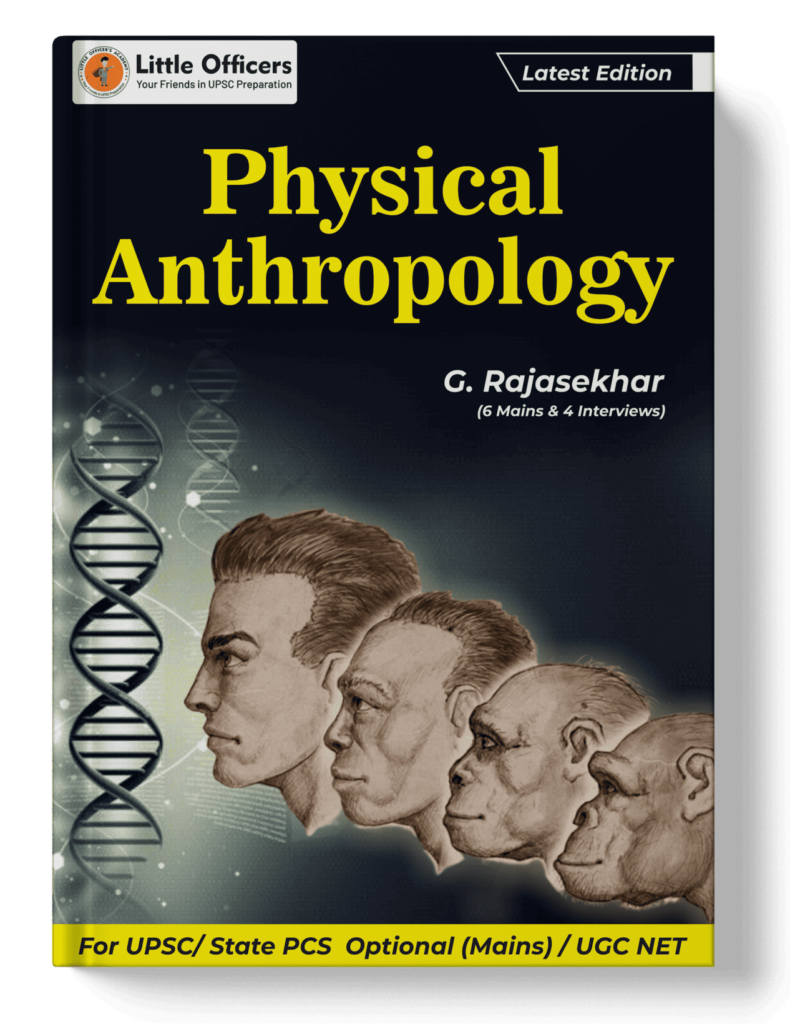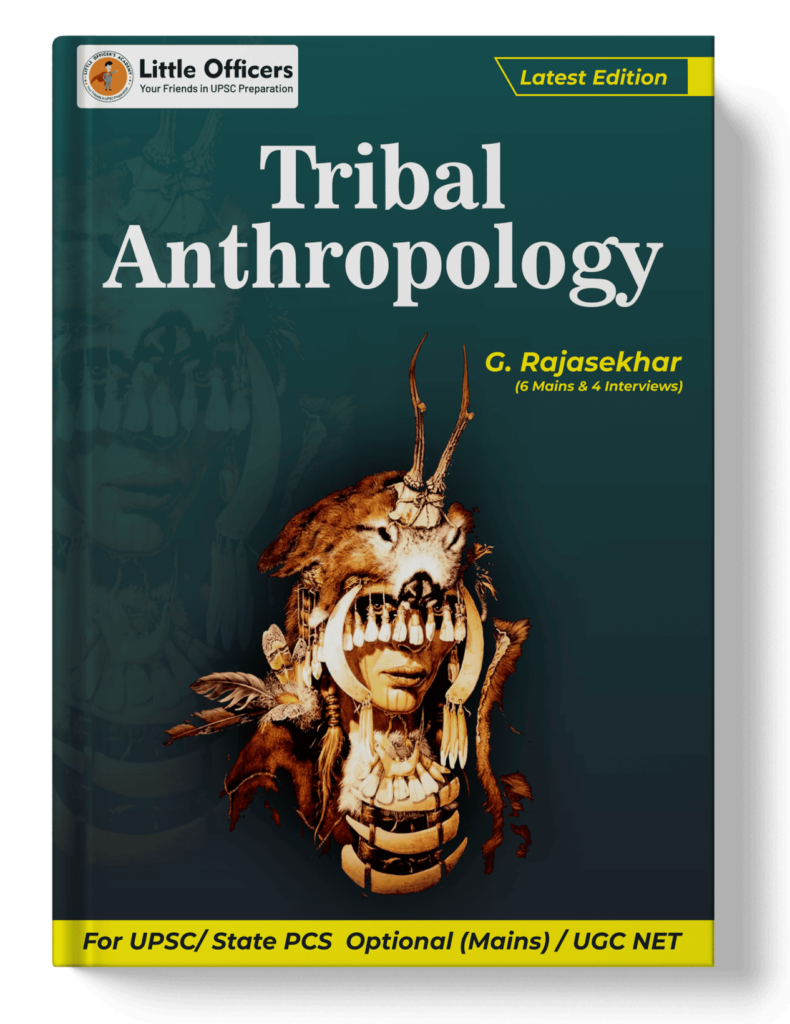
UPSC Anthropology PYQs
Welcome to the ultimate resource for UPSC Anthropology Optional aspirants. This book is tailored to aid your success in the UPSC Civil Services Examination with Anthropology as your optional subject. We’ve collected PYQs from 1985 to 2023, categorized them by topic, and presented mark analysis. Included are question papers from 2013 to 2023, aligning with the latest examination pattern.
This book embodies our dedication to your civil service dream and the significance of Anthropology. It’s a comprehensive, user-friendly tool that provides a roadmap, analysis, and practice materials all in one. Achieve your goals with this invaluable resource.
Prepare diligently, practice extensively, and conquer your dreams with this invaluable resource.
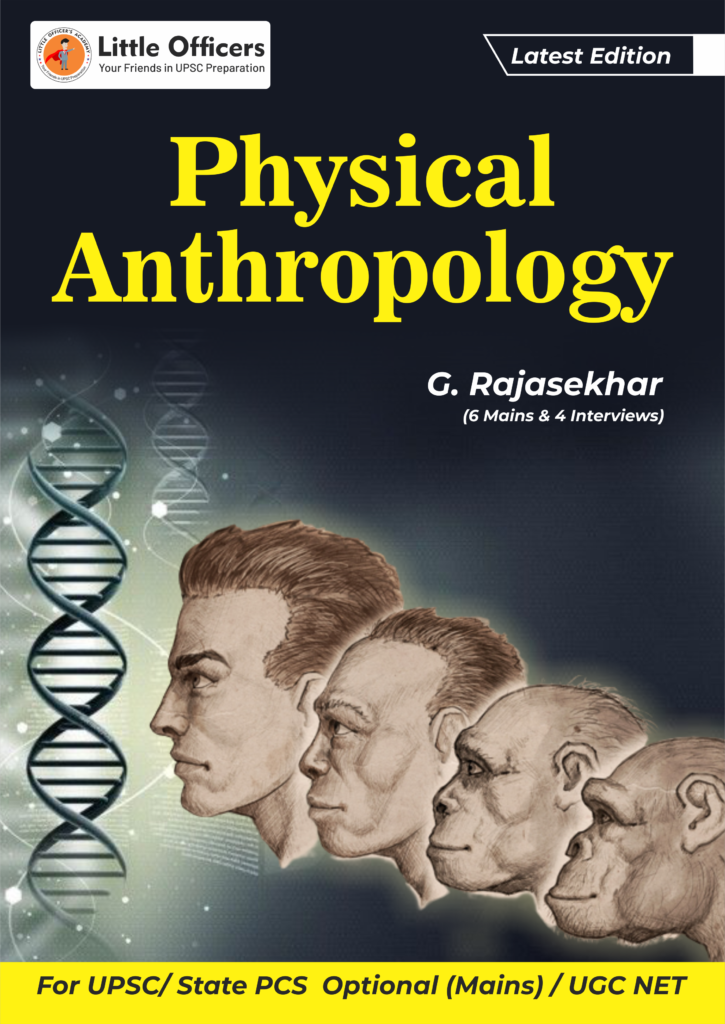
Physical Anthropology
Physical anthropology is a branch of anthropology that focuses on the biological aspects of human beings and their closest relatives, the non-human primates. It provides valuable insights into human biology, evolution, and the intricate relationship between culture and biology.
In this book, all aspects of Biological Anthropology such as Basics, Human Evolution, Primatology, Palaeoanthropology, Human Genetics & Variations, Human Growth and Development, Contemporary issues and Application of Anthropology are elaborately discussed.
Units Covered as per UPSC: 1.4, 1.5, 1.6, 1.7, 9.1, 9.2, 9.3, 9.4, 9.5, 9.6, 9.7, 9.8, 10, 11.1, 11.2, 11.3, 12 as per paper-I of Anthropology Syllabus.
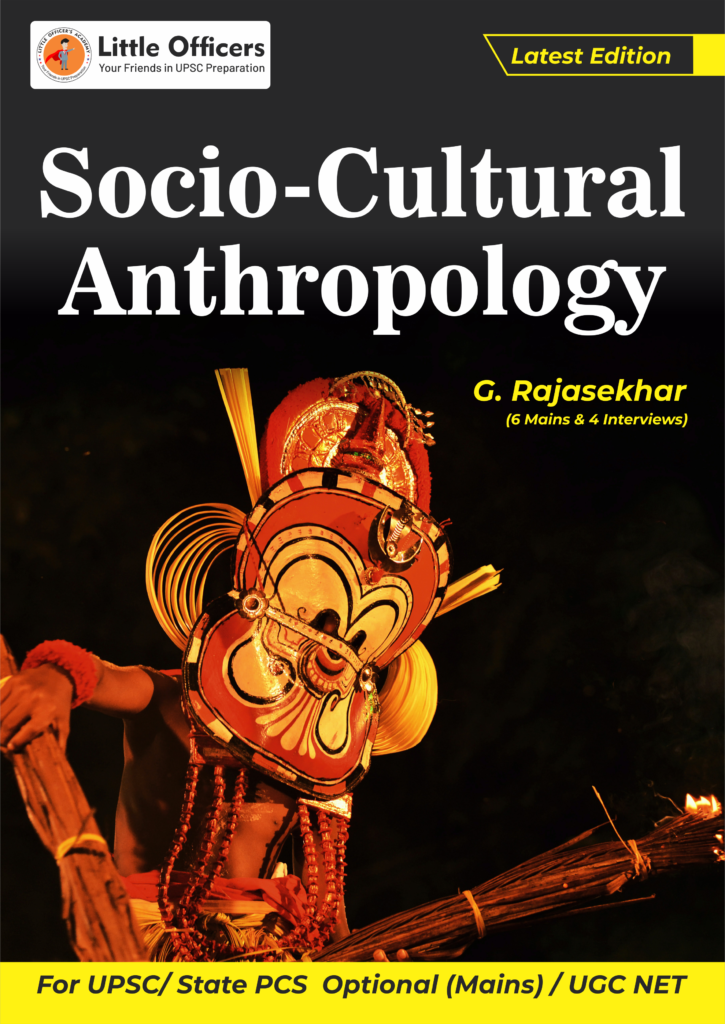
Socio-Cultural Anthropology
Socio-cultural anthropology is a major branch of anthropology that focuses on the study of human societies, cultures, and the various aspects of social life and cultural practices. Here are some key aspects and characteristics of socio-cultural anthropology.Cultural anthropology provides valuable insights into the complexity of human societies, their traditions, and the ways in which people make sense of the world around them. It contributes to our understanding of cultural diversity, social dynamics, and the shared aspects of the human experience.In this book, all aspects of Socio-Cultural Anthropology such as Basics of Anthropology, Culture, Society, Marriage, Family, Kinship, Economic Organization, Political Organization, Religion, Anthropological Theories, Language and Research Methods and Methodology are covered.
Units Covered as per UPSC: 1.1, 1.2, 1.3, 2.1, 2.2,2.3, 2.4, 2.5, 3, 4, 5, 6, 7, 8 units as per paper-I of Anthropology Syllabus.

Indian Anthropology
Indian Anthropology is a subfield of anthropology that focuses specifically on the study of the diverse cultures, societies, and communities within the Indian subcontinent. It encompasses the application of anthropological principles, methods, and theories to understand the unique cultural, social, and human aspects of India. Indian Anthropology plays a crucial role in understanding and addressing various socio-cultural issues within the country.
It covers Evolution of Indian Culture, Palaeo anthropological evidences from Indian subcontinent, Demography of India, Traditional Indian Society, Caste system, Development of Anthropology in India & Contributions of Anthropologists, Indian Village studies etc.
Units Covered as per UPSC: 1.1, 1.2, 1.3, 2, 3.1, 3.2, 3.3, 3.4, 4, 5.1, 5.2, 5.3 as per paper-II of Anthropology Syllabus.
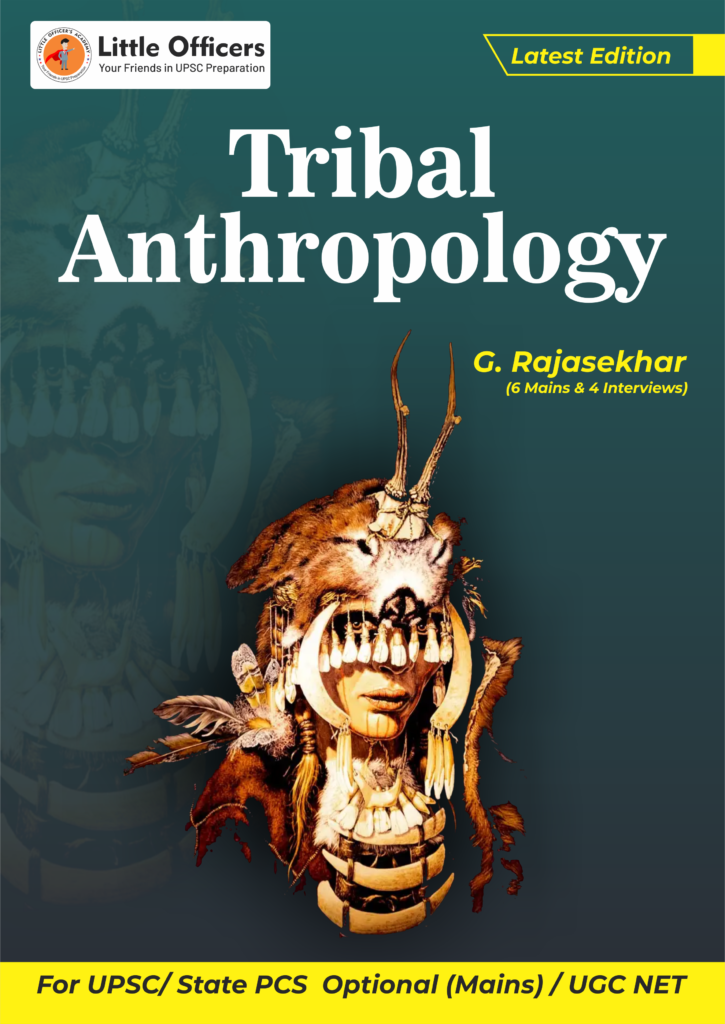
Tribal Anthropology
Tribal anthropology is a significant component of the Anthropology Optional paper for the UPSC (Union Public Service Commission) Civil Services Examination. It focuses on the study of tribal or indigenous communities and their socio-cultural, economic, and political aspects. Candidates opting for tribal anthropology as part of their Anthropology Optional should not only be well-versed in the theoretical aspects of the subject but also have the ability to apply anthropological concepts and perspectives to analyze and provide insights into the socio-cultural dynamics of tribal communities in India.
In this book topics like Tribal situation and Problems, Developmental projects and their impact on tribes, Scheduled Castes, Scheduled Tribes and Other Backward Classes problems & Safeguards, Tribal administration etc. are covered.
Complete your prepare with these Books
